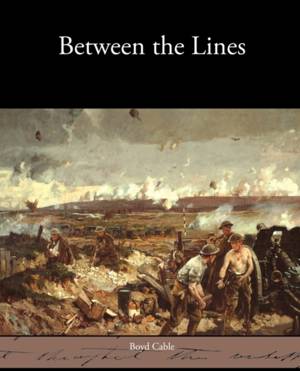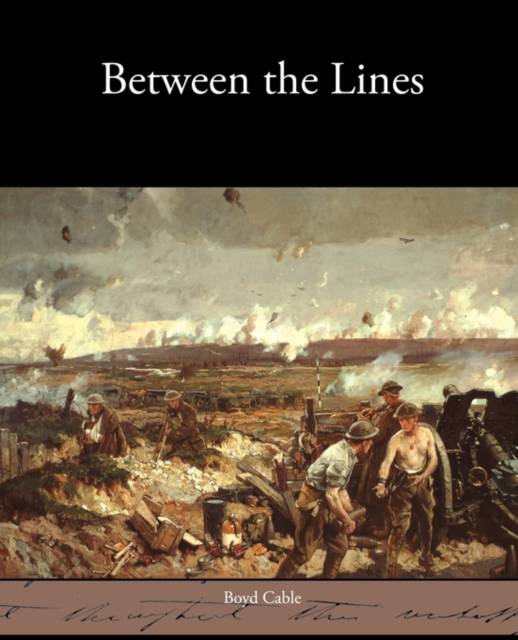
- Afhalen na 1 uur in een winkel met voorraad
- Gratis thuislevering in België vanaf € 30
- Ruim aanbod met 7 miljoen producten
- Afhalen na 1 uur in een winkel met voorraad
- Gratis thuislevering in België vanaf € 30
- Ruim aanbod met 7 miljoen producten
Zoeken
Omschrijving
Boyd Cable (1878 - 1943) wrote Between the Lines about the Western Front in World War I. He wanted the people back home to know what really was happening not just what they heard from official sources. The book opens with a lookout listening for enemy footsteps in a rainstorm. "For perhaps the twentieth time in half an hour the look-out man in the advanced trench raised his head cautiously over the parapet and peered out into the darkness. A drizzling rain made it almost impossible to see beyond a few yards ahead, but then the German trench was not more than fifty yards off and the space between was criss-crossed and interlaced and a-bristle with the tangle of barb-wire defences erected by both sides. For the twentieth time the look-out peered and twisted his head sideways to listen, and for the twentieth time he was just lowering his head beneath the sheltering parapet when he stopped and stiffened into rigidity. There was no sound apart from the sharp cracks of the rifles near at hand and running diminuendo along the trenches into a rising and falling stutter of reports, the frequent whine and whistle of the more distant bullets, and the quick hiss and 'zipp' of the nearer ones, all sounds so constant and normal that the look-out paid no heed to them, put them, as it were, out of the focus of his hearing, and strained to catch the fainter but far more significant sound of a footstep squelching in the mud, the 'snip' of a wire-cutter at work, the low 'tang' of a jarred wire."
Specificaties
Betrokkenen
- Auteur(s):
- Uitgeverij:
Inhoud
- Aantal bladzijden:
- 146
- Taal:
- Engels
Eigenschappen
- Productcode (EAN):
- 9781438533025
- Verschijningsdatum:
- 31/12/2009
- Uitvoering:
- Paperback
- Formaat:
- Trade paperback (VS)
- Afmetingen:
- 190 mm x 235 mm
- Gewicht:
- 263 g

Alleen bij Standaard Boekhandel
+ 48 punten op je klantenkaart van Standaard Boekhandel
Beoordelingen
We publiceren alleen reviews die voldoen aan de voorwaarden voor reviews. Bekijk onze voorwaarden voor reviews.








